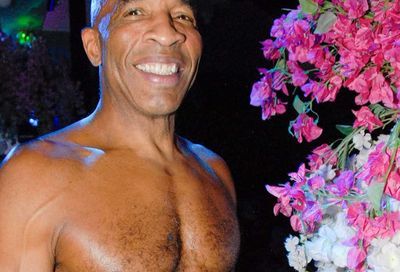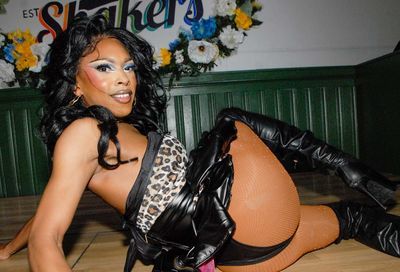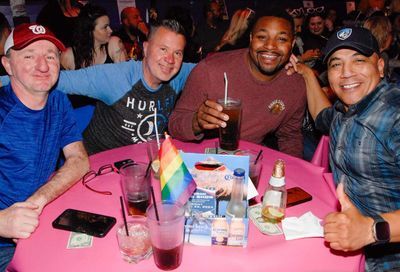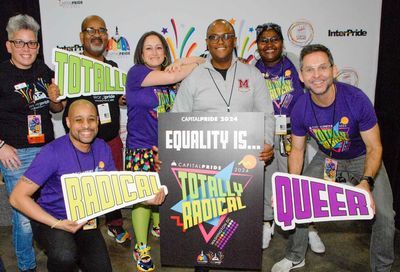W.H.O. Declares Monkeypox a “Global Health Emergency”
Designation has only previously been used to describe two other diseases: COVID-19 and polio.

The World Health Organization has declared the spread of monkeypox to be a global health emergency as infections continue to increase across the globe, with more than 98% of cases occurring in countries that do not have a history of reports of the disease.
The agency’s decision came on Saturday, after Dr. Tedros Adhanom Ghebreyesus, the director general of the W.H.O., overruled — for the first time ever — a panel of advisers who were unable to come to a consensus about whether to declare the ongoing smallpox outbreak a “public health emergency of international concern.” Currently, the agency only uses the term to describe two other diseases: COVID-19 and polio.
Tedros justified the decision to declare a global health emergency by citing the rapidity with which the monkeypox virus has spread globally, through new modes of transmission, and the lack of knowledge about how the virus is spreading during this current outbreak, according to The New York Times.
The declaration signals a public health risk requiring a coordinated international response. The designation could lead W.H.O. member countries to invest resources into controlling an outbreak, increasing funding for various interventions or initiatives to respond to the monkeypox virus, and share vaccines and treatments in an attempt to lessen the spread of the disease.
The advisory panel previously decided against declaring monkeypox a global health emergency in June, on the grounds that, although the disease was a growing threat, the number of confirmed cases of monkeypox infection had not risen to a level justifying the change in designation. At the time, the disease had also not moved beyond the primary risk group of men who have sex with men.
Currently, there are 16,836 confirmed cases of monkeypox infection globally, in 74 countries, and 2,891 confirmed cases in the United States. The overwhelming majority of the infections outside Africa — the region to which the virus is endemic — have occurred among men who have sex with men. The total number of cases globally has increased fivefold since June.
Some LGBTQ advocates have criticized the response of public health officials to the virus as slow and cumbersome, likening it to the early days of the HIV epidemic, especially as it relates to the rollout of vaccines that can be used to lessen the chance of infection. Currently, the JYNNEOS vaccine, which is used to prevent smallpox, is being used to vaccinate individuals against monkeypox, due to genetic similarities between the two viruses and the fact that JYNNEOS has been found to be at least 85% effective in preventing monkeypox infection.
Vaccinations are essential to curbing the epidemic, because the longer the outbreak continues, the greater the chances are of the virus moving from infected people to animal populations, especially rodents, becoming endemic to a certain area — meaning that the virus will reemerge from time to time and trigger new infections in people.
Dr. James Lawler, the co-director of the University of Nebraska’s Global Center for Health Security, told The New York Times that it might take a year or more to control the outbreak. But some experts fear that by the time that happens, the virus may have infected hundreds of thousands of people and become endemic to some areas.
“We’ve now unfortunately really missed the boat on being able to put a lid on the outbreak earlier,” Lawler said. “Now it’s going to be a real struggle to be able to contain and control spread.”
The virus that causes monkeypox infection is primarily spreading through close contact, including during sex. The disease is not considered to be a sexually-transmitted disease because there is no evidence that it can be transmitted through semen or vaginal fluid. However, it can be easily spread through skin-to-skin contact or contact with infected items, such as towels or bedsheets, that have touched open sores, according to the Centers for Disease Control and Prevention.
The Human Rights Campaign, the nation’s largest LGBTQ advocacy organization, commended the W.H.O. for declaring the current outbreak a global health emergency, noting that the designation signals to public health officials that efforts to combat the disease need to be prioritized.
“This designation must serve as an alarm to public health officials and governments around the world that combatting monkeypox is a top priority; it is critical to rapidly increase testing capacity and vaccine distribution in order to reach communities most impacted by the virus, particularly gay and bisexual men and transgender women, who comprise the majority of current cases,” Jay Brown, the senior vice president of programs, research, and training at HRC, said in a statement.
“A public health response that does not center equitable care and treatment is a failed response,” Brown added. “”We are especially concerned that BIPOC and LGBTQ+ people who face greater challenges in accessing healthcare will bear the brunt of MPV (monkeypox virus). The LGBTQ+ community will continue to do what we have done for decades — care for one another, be compassionate and empathetic, and advocate for our community’s well-being.”
U.S. Rep. Mike Quigley (D-Ill.), who represents some of Chicago’s most well-known LGBTQ neighborhoods, has called on President Joe Biden and Secretary of Health and Human Services Xavier Becerra to declare the monkeypox outbreak in the United States to be a public health emergency and to ensure that enough doses of vaccine are made available to those at higher risk of contracting the disease, in the hope of lessening the chance that the virus will infect others.
“I have heard from many constituents that there are not enough monkeypox vaccines to go around, and treatments that exist for individuals who contract the virus require onerous amounts of paperwork to obtain,” Quigley said in a statement. “It is past time the federal government treat monkeypox with the urgency it deserves.”
Support Metro Weekly’s Journalism
These are challenging times for news organizations. And yet it’s crucial we stay active and provide vital resources and information to both our local readers and the world. So won’t you please take a moment and consider supporting Metro Weekly with a membership? For as little as $5 a month, you can help ensure Metro Weekly magazine and MetroWeekly.com remain free, viable resources as we provide the best, most diverse, culturally-resonant LGBTQ coverage in both the D.C. region and around the world. Memberships come with exclusive perks and discounts, your own personal digital delivery of each week’s magazine (and an archive), access to our Member's Lounge when it launches this fall, and exclusive members-only items like Metro Weekly Membership Mugs and Tote Bags! Check out all our membership levels here and please join us today!





















